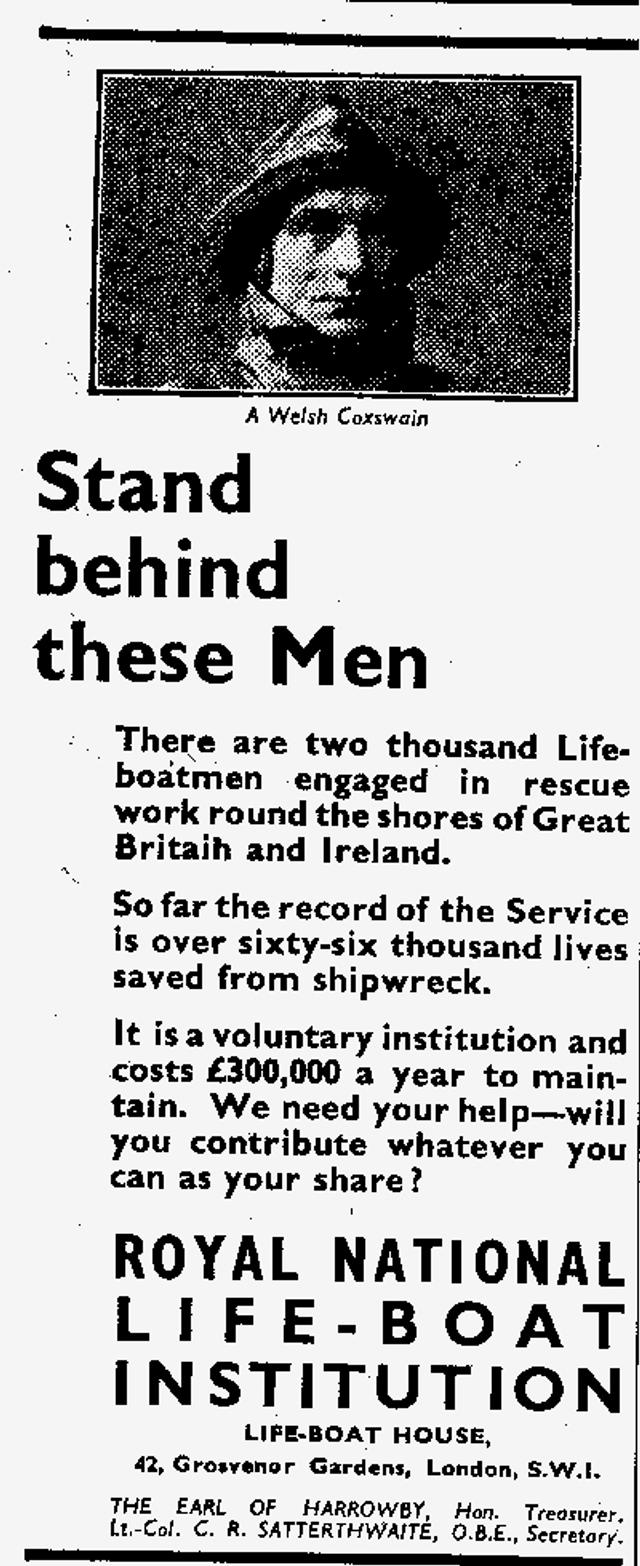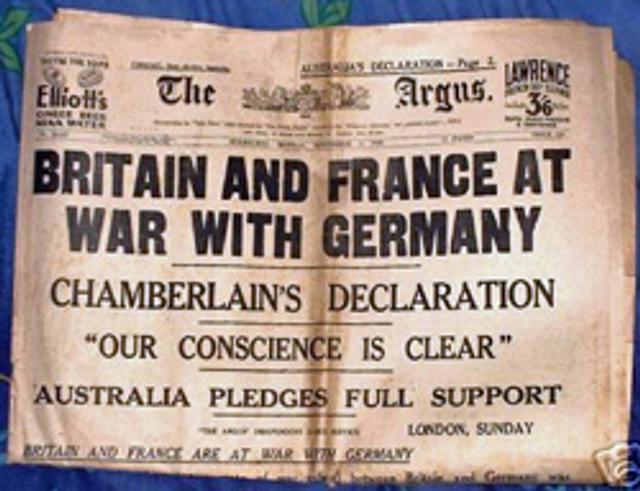RNLI: ‘stand behind these men’ press ad
- Exhibited by
- Ian Ventham.
- Added
- September 28, 2009
- Medium of Communication
- Press advertising
- Target Audience
- Individuals, single gift
- Type of Charity
- Community & social services, public / society benefit.
- Country of Origin
- UK
- Date of first appearance
- 1939
SOFII’s view
Even though this example from the RNLI of fundraising off-the-page appeared a long time after Dr Barnardo’s moving letters it did pre-date the famous Oxfam ads by several years. The message is simple and direct – it tells who the RNLI is, what it does, and gets straight to the point by asking what the reader will contribute. It also uses a photograph of a crew member at the top of the page – a tradition that continues today.
Creator / originator
Unknown.
Summary / objectives
The RNLI saves lives at sea by providing a 24-hour lifesaving service around the UK and Ireland. In 2007, RNLI lifeboats rescued more than 8,000 people, an average of 22 people per day. RNLI lifeguards patrol more than 70 beaches in the UK in peak season and help up to 10,000 people annually. RNLI is also involved in safety and prevention and aims to save lives each year by changing attitudes and behaviour among people who use the sea regularly.
The ‘Stand behind these men’ press ad aimed to solicit donations.
Background
The impression most people have is that modern charity direct marketing through off-the-page advertising for fundraising began with Oxfam after World War Two and yet here is a – admittedly very unsophisticated – press ad that appeared in The Times as early as 1939.
Merits
This is an early example of press advertising and a further reminder that charity fundraising has been with us for a long time.
Other relevant information
Scanned from The Times dated Monday 12 June 1939.


















